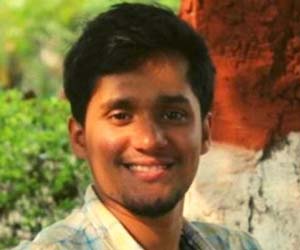UGC has launched an online portal to facilitate the recruitment of industry experts as “Professors of Practice” (PoP) for India's education institutions. This move is expected to reduce the gap between academia and industry in different domains. The scheme for PoP was introduced as a part of the National Education Policy (NEP) 2020. The recent launch of the portal is a significant step in the implementation of the same. The portal will function as a common platform for both parties, that is, the experts and the universities. This is to say, on one hand, the experts can register themselves by uploading their biodata, and the platform will also enable them to contact the universities that require “professors of practice”. On the other hand, the platform will also allow educational institutions to register, give advertisements and approach these experts.
The number of such PoPs will be restricted to 10 per cent of the total sanctioned faculty positions in higher education institutions (HEIs).
In the words of Sri. Jagdeesh Kumar, UGC Chairman, “the objective behind introducing a Professor of Practice by UGC is to enhance the quality of higher education by bringing practitioners, policymakers, skilled professionals, etc. into the higher education system.”
What is to be highlighted is that the UGC doesn’t mandate a formal academic qualification for this post in an educational institution. Individuals with at least 15 years of expertise in their respective domains are eligible to register as professors of practice (pop). The entry of many professionals or experts to academics was impossible in the absence of Ph.D. qualifications. Hence, their contribution to academia remained minimal as the entry was restricted.
This initiative should ideally enable even an ordinary farmer who is an expert in ‘practicing’ agriculture, who also has an academic tweak or an ability to teach to acquire such posts in educational institutions in India. Or, an independent practitioner in the field of ecology, who works for the rejuvenation of the environment could be invited to teach on the climate crisis at academic institutions. One of the crises in academia across all fields, from social sciences to economics to philosophy, is the lack of experiential learning.
As a result of less interaction with the non-academic world, academic practices often suffer from not being grounded enough and updated. It leads to endless reproduction or repetition of academic presumptions and scholarly consensus. On the other hand, professionals in the industry and other fields of practice hardly have the knowledge about the way in which the current generation thinks. Many of the practitioners are also unaware of the ways in which they could explain their practices to others. If this platform is used well, with a student-centric approach, it can fill the existing gap mentioned above.
Some suggest that to extract the best out of the concept, the existing academic scenario has to undergo some structural changes. For instance, professionals’ expertise could be improved if students are often taken out to the fields or to a livelier atmosphere, rather than mere classroom teaching. Prof. Anubhuti Yadav of the Indian Institute of Mass Communications says in an article in the Times of India that for the successful implementation of ‘professor of practice’ scheme, HEIs should adopt a ‘Teaching Hospital Model’. A teaching hospital model is similar to what is practiced in medical colleges where junior student doctors are given the exposure to treat live cases under the practicing doctor’s supervision.
Likewise, finding the right working professionals as ‘Professors of Practice’ and making the position attractive to quality professionals would be another challenge. Some suggest a hybrid approach to combat the challenge of the professionals having relatively less time, unlike the regular faculties, to take up an extensive curriculum or a credit course. Contrary to it, Yogesh Singh, Vice Chancellor, University of Delhi (DU), opines in the Education Times that such a hybrid approach would not be productive and adds that for DU, “we are looking to find candidates who will be able to stay at the campus full time for a minimum of one semester.”
Some critics feel that the eligibility criteria for the appointment are loosely framed and are vulnerable to misuse. Since academic qualifications aren’t mandatory, they suppose it might promote backdoor entries by ineligible candidates merely on the basis of influence or contacts into faculty positions at HEIs. As a response to this claim, Deputy Secretary of UGC, Sri Salil Sahadevan writes in the Deccan Herald that “the real issue behind is the trust deficit in the current institutional structures and not the scheme of Professors of Practice. Withholding reforms fearing misuse is a case of functional fixedness, a cognitive bias.” He also feels the criticism that it would affect the career prospects of teachers, or that it would lead to professional ego clashes between PoPs and other faculty members are only related to the ‘power dynamics of professional groups’. It means these concerns are to be dealt with otherwise as they are unrelated to the students directly. Unmoved by such concerns, he believes that, ideally, the initiative would open ways for complementary learning between academicians and practitioners.
(The paper is the author’s individual scholastic articulation. The author certifies that the article/paper is original in content, unpublished and it has not been submitted for publication/web upload elsewhere, and that the facts and figures quoted are duly referenced, as needed, and are believed to be correct). (The paper does not necessarily represent the organisational stance... More >>
Image Source: https://www.hertie-school.org/en/study/scholarships/special-focus-scholarships/newperspectives










Post new comment